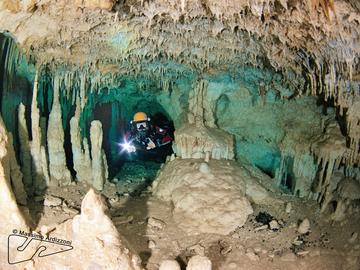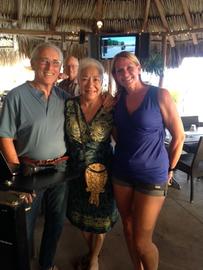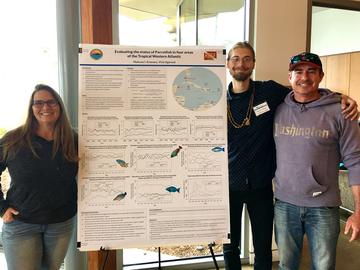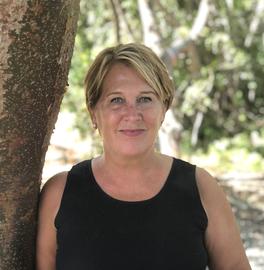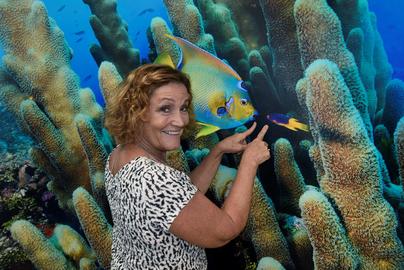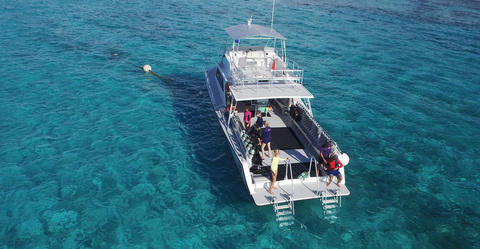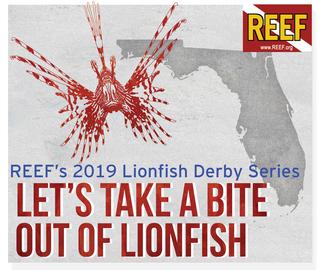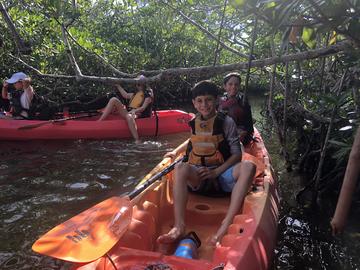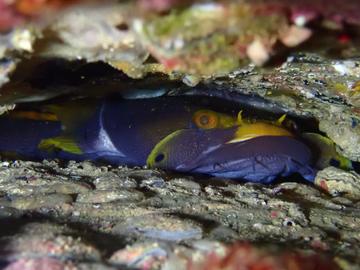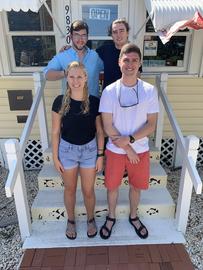REEF members are the heart of our grassroots marine conservation programs. A diverse community of divers, snorkelers, and ocean enthusiasts support our mission to conserve marine environments worldwide.
This month, REEF is proud to highlight one of our outstanding Conservation Partners: Buddy Dive Resort in Bonaire. REEF Conservation Partners are active organizations and dive shops dedicated to protecting marine environments. As valued REEF ambassadors, they teach fish ID classes, host survey dives, organize volunteer events and more. Read on to find out how you can get involved with these centers of conservation action!
Herbivores play a critical role in balancing coral reef ecosystems. In the Caribbean, this role is mostly filled by parrotfish, surgeonfish, and sea urchins. Parrotfish take their important role one step further in that their constant scraping of algae growing on rock and dead coral results in a lot of poop, which is effectively the nice white sand found on beaches. A single parrotfish can generate up to 700 pounds of sand a year. Parrotfish are also a favorite food fish, and unfortunately their populations have been heavily depleted in many areas.
Caroly Shumway has left REEF after serving as its Executive Director to pursue opportunities related to addressing climate change. While at REEF, she helped advance our strategic partnerships, scientific applications of our programs, and our financial and regulatory procedures. We are grateful for her contributions to the organization. Caroly remains a committed conservationist, and we wish her well in her future endeavors.
This month, we are saying farewell and best wishes to Bonnie Barnes, who served as Development Manager since April 2017. Bonnie has accepted a position as Executive Director of the Deering Estate Foundation in Miami.
Spaces still remain on some REEF Field Survey Trips this year, and we are now accepting registrations for 2020 REEF Trips as well! Join us for a vacation filled with diving, educational fish ID lessons, and fun with friends. We have a few spots open on these upcoming trips:
In honor of the upcoming Summer Lionfish Derby Series, we are spotlighting several Conservation Partners who go above and beyond in their support of our lionfish work. Thank you to Forever Young Charter Company, Juliet Sailing and Diving, Sea Experience, ZooKeeper, and Johnny Leuthold for sponsoring our 2019 Lionfish Derby Series as REEF Conservation Partners!
Immerse your child into an ocean of learning and fun this summer! Open to campers ages 8-13, each week-long session of Ocean Explorers Camp includes coral reef snorkeling trips, kayak ventures through winding mangrove trails, a glass bottom boat ride, arts and crafts, hands-on marine science lessons, and a dolphin interaction and touch tank program! Camp is hosted Monday-Friday from 9am-3pm at John Pennekamp Coral Reef State Park and Island Dolphin Care, both located in Key Largo, FL. 2019 Ocean Explorers Summer Camp dates include June 24-28, July 15-19, and July 29-Aug. 2.
The Volunteer Fish Survey Project is REEF’s cornerstone citizen science program, and was the foundation of the organization’s inception. The goal of the program is to enlist divers and snorkelers to report fishes they see during their time in the water; documenting status and trends much in the way birdwatchers do for birds. The first REEF surveys were conducted in 1993 by a few dozen volunteers in the waters off Key Largo, Florida. The program has grown significantly, with more than 16,000 volunteers participating and 230,000 REEF surveys conducted at sites around the world.
We’re excited to introduce our Summer 2019 Marine Conservation Interns. These individuals will support the REEF team in mission-oriented tasks and daily office operations at REEF Headquarters, as well as play an integral role in our Lionfish Derby Series, Ocean Explorers Summer Camp, and other education and outreach events taking place this summer. They will also have opportunities to scuba dive, conduct fish surveys, and volunteer with environmental organizations in South Florida and the Florida Keys. This semester’s interns bring a unique set of skills and interests to REEF.

